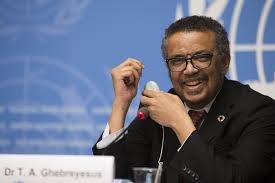Korede Abdullah in Lagos
The World Health Organization (WHO) has extended its Public Health Emergency of International Concern (PHEIC) declaration for the ongoing MPox epidemic, driven by a persistent rise in cases across the African region, according to a WHO news release issued on Wednesday.
The decision, announced by WHO Director-General Dr. Tedros Adhanom Ghebreyesus, follows recommendations from the International Health Regulations (IHR) Emergency Committee.
The committee cited the escalating spread of the MPox virus (MPXV) in multiple African countries, coupled with challenges in containment, as the basis for continuing the PHEIC status, first declared in 2022.
“The upsurge in MPox cases in Africa is deeply concerning,” Dr. Tedros stated. “The extension of the PHEIC underscores the need for a coordinated global response to support affected regions with resources, surveillance, and vaccination efforts,” he added.
The WHO reported a significant increase in MPox cases, particularly in Central and West Africa, with strained healthcare systems and limited access to vaccines exacerbating the crisis.
The virus, which spreads through close contact and contaminated materials, has led to thousands of confirmed cases and hundreds of deaths in 2025 alone.
The PHEIC designation aims to mobilize international support, including funding, medical supplies, and technical assistance, to curb the epidemic.
WHO is urging governments and partners to prioritize rapid diagnostic testing, contact tracing, and equitable vaccine distribution to high-risk areas.
Health experts warn that without intensified global cooperation, the MPox epidemic risks further spread, potentially beyond Africa.
The WHO therefore called for increased public awareness and adherence to preventive measures, such as avoiding close contact with infected individuals and practicing good hygiene.



